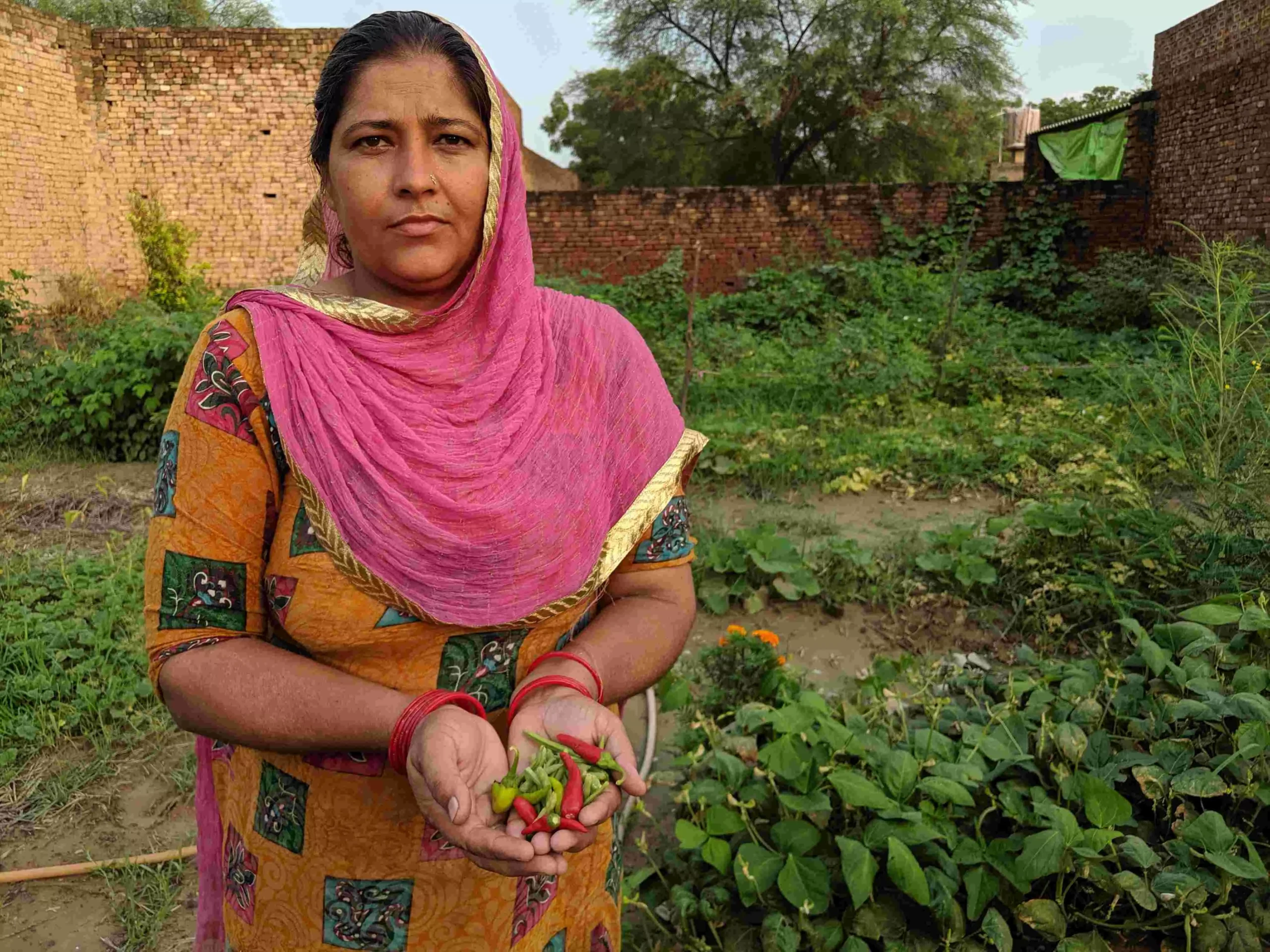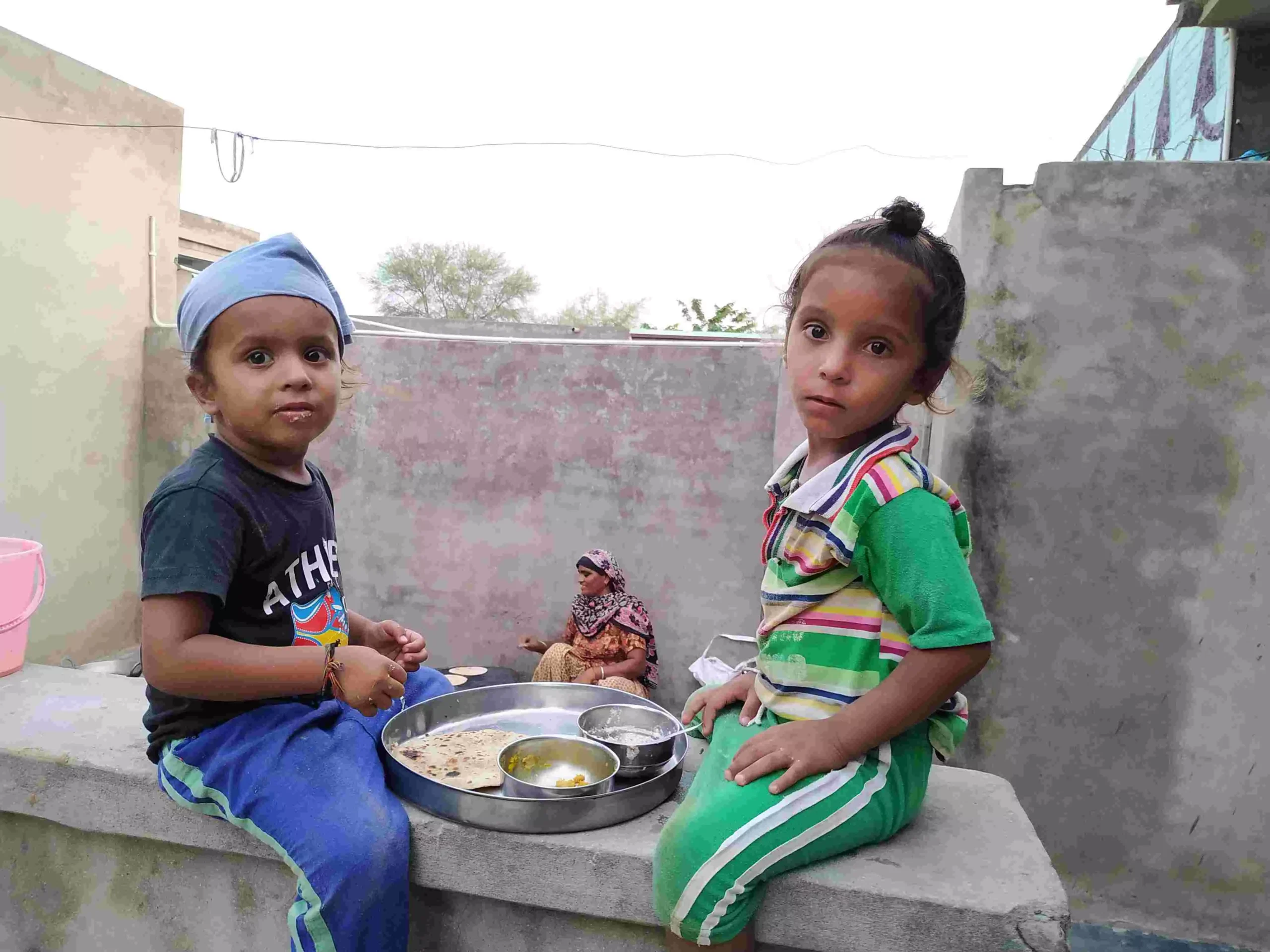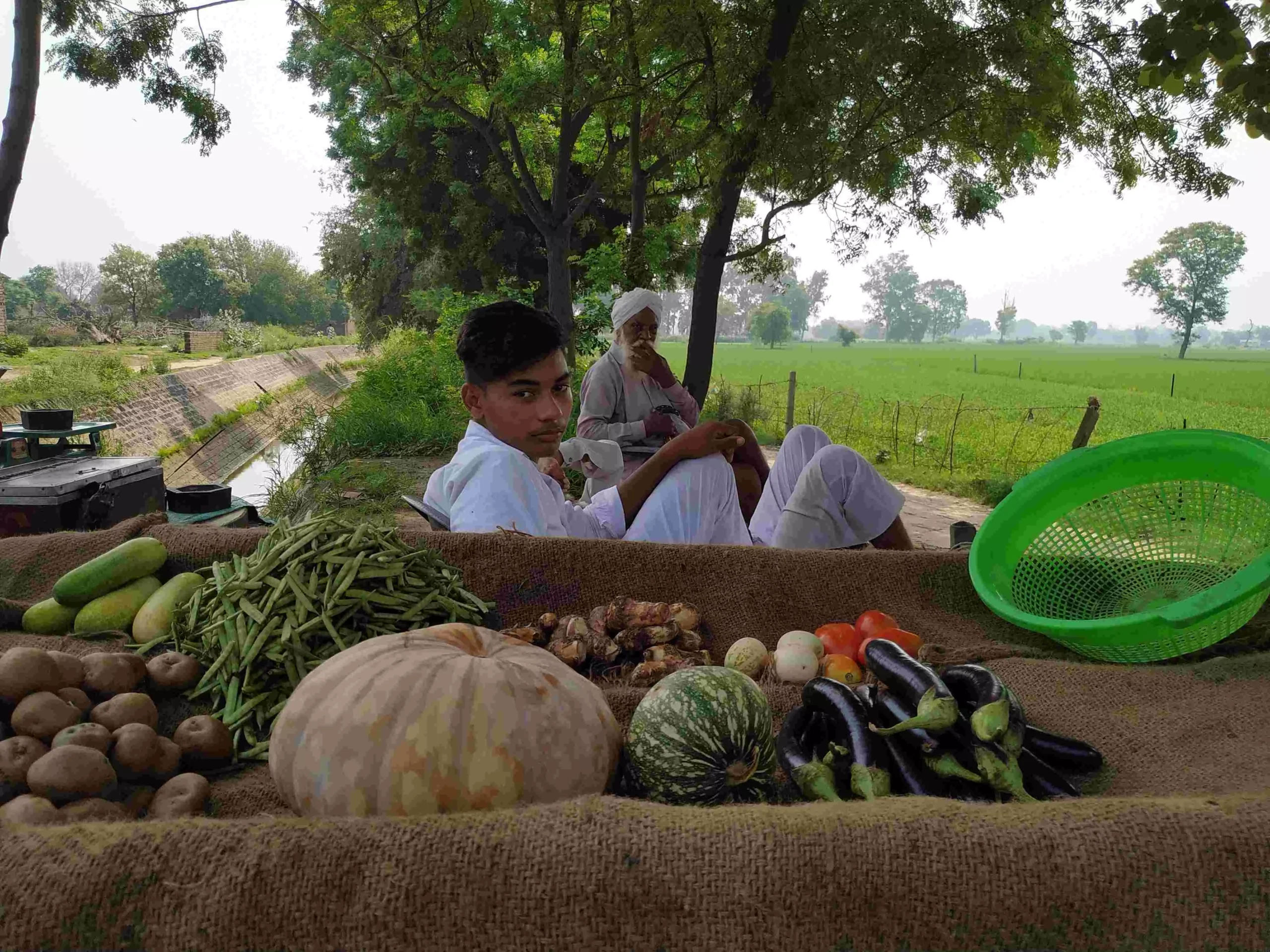“A mother can’t let her kids eat poison,” said Sarbajeet Kaur when Gaon Connection asked her to comment on the need to switch to kitchen gardening.
Sarbajeet Kaur, who lives in Kotli village in Sri Muktsar Sahib district of Punjab, has adopted kitchen gardening in the vacant space available near her house. Her neighbour, Karamjeet Kaur, too has adopted organic farming to prevent her family from eating toxic vegetables. What’s more? She also earns her livelihood by selling these vegetables – which she grows on her own.
“For a family of seven, we had to buy vegetables worth Rs 60-100 per day, but as soon as we started growing vegetables on our own, we are saving that money. Also, we are now eating poison-less food,” said Karamjeet Kaur, 35. Switching over to organic farming has improved her financial condition. She now owns a big house, many acres of land, a tractor and dozens of buffaloes and cows.
Watch the video here:
Punjab has been bearing the brunt of the ill effects of Green revolution; as a result of which tens of hundred people die of cancer every year. Sarbjeet and Karamjeet live in the region which has seen rampant use of pesticide.
However, people in cities of Punjab have adopted terrace farming and kitchen gardening and villagers grow vegetables and grains on vacant lands available near their homes. They also grow vegetables in their balconies. Recently, the number of kitchen gardeners in the state has increased in the past few years.
Karamjeet Kaur stopped buying chemical fertilizers, insecticides, DAP-Urea loaded vegetables and started growing vegetables – organically — on vacant plots near her home. Karamjeet has grown several vegetables, including louki (bottle guard), dhaniya (coriander), kaddu (pumpkin), and green chilies. She is one of the affluent farmers of Punjab. Karamjeet believes that if we want to save our families from the attack of dreadful diseases as cancer we should start growing vegetables on our own.
 Karamjeet Kaur also earns her livelihood by selling these vegetables
Karamjeet Kaur also earns her livelihood by selling these vegetables
In a video released in September 2019, CM Pandey, advisor of India National Food Security Mission, advised farmers to discontinue use of chemical pesticides and insecticides. When needed, they should use only organic pesticides.
Farmers in Punjab-Haryana use as much as three times of the average consumption of chemical pesticides across the country. The value is 0.29 kg a hectare for the country, while it is 0.75 kg a hectare for Punjab-Haryana. Its ill effects have been seen in states’ flowers, fruits and vegetables grown in the state.
What we praise as Punjab’s greenery is toxic layered in its fields. Not only cancer, but the people in the stare are suffering from several severe skin-related and kidney diseases. “Fields in Punjab may appear greener and its cities brighter, but the truth is that its fields contain poison. Not only cancer, but the people in Punjab are suffering several severe skin-related and kidney diseases,” said Umendra Dutt, who is an executive director of Kheti Virasat Mission in Punjab.
Kheti Virasat Mission, a non-profit organization based in Punjab, aims to make farmers aware to switch over to organic kitchen farming to save its people from the ill effects of harmful chemicals served on platters.
 Many families in Punjab have adopted organic farming to prevent their children from eating toxic vegetables
Many families in Punjab have adopted organic farming to prevent their children from eating toxic vegetables
“Whatever villagers produce is what city folks eat. This is why we have started using organic kitchen gardening in villages and urban farming in the cities. Many people are connected with us. We are also witnessing changes,” added Upendra.
Rupsi Garg, associate director of Kheti Virasat Mission (Jaito, Punjab), said: “With the help of many women, we started practicing kitchen gardening. After which, they started growing seasonal vegetables in the space available in their homes.”
“In 2008, we started practicing kitchen gardening from four villages of Barnala and Faridpur. But by 2019, we have covered 50 villages so far. More than 500 women here have adopted kitchen gardening. We are also working in Muktsar, Firozpur and Amritsar. People here are now eating pure and healthy vegetables. It also helped them in saving their money,” added Rupsi.
Daljeet Kaur, who lives in Kotli village in Mukteshwar district of the state is earning good money after adopting kitchen gardening. She has grown ladies finger, bitter gourd, capsicum and several other varieties of vegetables in the vacant space available in front of her home.
“I manage to grow 5-7 kilo vegetables per day. I add cow dung to the soil. Sometimes, I also spray lassi (buttermilk) to the crops. I eat these vegetables and sell the remaining produce in my neighbourhood. It fetches me Rs 80-150,” said Daljeet Kaur.
 Many people in Punjab grow their own vegetables and sell them
Many people in Punjab grow their own vegetables and sell them
Even though Daljeet is not highly educated yet she understands that her husband — who is suffering from acidity and several other diseases — fell ill because of eating food that was loaded with urea and insecticides.
Sukhvinder Singh, who lives in Goniana in Bhatinda district of Punjab, has grown vegetables in the backyard of his office. “Whatever we are eating today is toxic. Elderly as well as kids are getting sick. Since I don’t have a vacant place at my home, I started growing vegetables free of chemical pesticides in the backyard of my shop,” said Sukhvinder, who does shuttering business in Goniana.
He added, “There’s no other expense other than seeds and water. Just that I have added little compost to it. They grow right in front of my eyes. I know they are healthy and safe.”
Diti Bajpai contributed to this story.




















